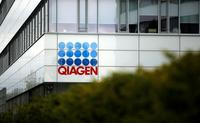Polymerase chain reaction (PCR) is a powerful technique used in molecular biology to amplify and detect DNA fragments. This molecular technique is widely used in many fields such as medical diagnosis, genetic analysis, research, and forensics. PCR has proven to be an extremely efficient and precise method of DNA amplification. With the development of PCR detection kits, the detection of many diseases has been made possible. In this blog, we'll discuss how you can maximize your PCR success with standardized methods and quality PCR detection kits.

Standardized Methods for PCR
To increase the accuracy of PCR reactions, the methods used should be standardized. Standardization involves ensuring all the reaction components are consistent between samples. Standardization can be achieved by ensuring:
- Templates are equivalent
- Primers are equivalent
- PCR conditions are identical
Standardization begins with the extraction of the DNA template. The quality of the DNA template is paramount to the success of PCR reactions. Thus, standardized methods should be used to extract the DNA template to remove variability from different samples. Once extracted, samples should be normalized to ensure the same concentration of template DNA is used in each reaction.
The primers used in PCR reactions should also be standardized. Standardization involves using the same primers across all samples. It's also essential to ensure primers are of high quality, accurately measured, and free from any contaminants that could lead to inaccurate results.
PCR conditions such as annealing temperature are essential for successful amplification to take place. Standardized PCR conditions should be used to ensure the same reaction conditions are employed for all samples.
Quality PCR Detection Kits
PCR detection kits are designed to detect and amplify specific DNA sequences in a given sample. These kits are designed with stringent quality control measures to ensure the highest level of accuracy and reproducibility of results.
PCR detection kits contain all the essential components required for PCR amplification to take place. These components include:
- DNA polymerase
- Buffers
- dNTPs
- Primer pairs
The components of PCR detection kits are carefully selected to ensure a high level of accuracy and reproducibility of results. High-quality polymerase enzymes are used to ensure fast and accurate amplification of DNA. Buffers are used to maintain optimal PH levels, and the correct concentration of dNTPs is necessary for accurate PCR amplification.
PCR detection kits are also designed to be highly specific, reducing the risk of false-positive results. Highly specific primers are selected and matched to target specific sequences in the DNA. The use of highly specific primers reduces the risk of cross-reactivity and false-positive results.
PCR detection kits also have critical quality control measures to ensure the high quality of results. Quality control measures include rigorous testing of reagents and sensitivity testing to detect lower quantities of DNA.
Conclusion
PCR amplification is a powerful technique used across many fields. The success of PCR amplification is dependent on the standardization of methods and the use of quality PCR detection kits. Standardized methods ensure consistency between samples, reducing variability, and improving the accuracy of results. Quality PCR detection kits are designed with high-quality enzymes, buffers, primers, and stringent quality control measures, ensuring accurate and reproducible results. When combined, standardized methods, and quality PCR detection kits, increase the accuracy of PCR and ensure the highest quality of results.